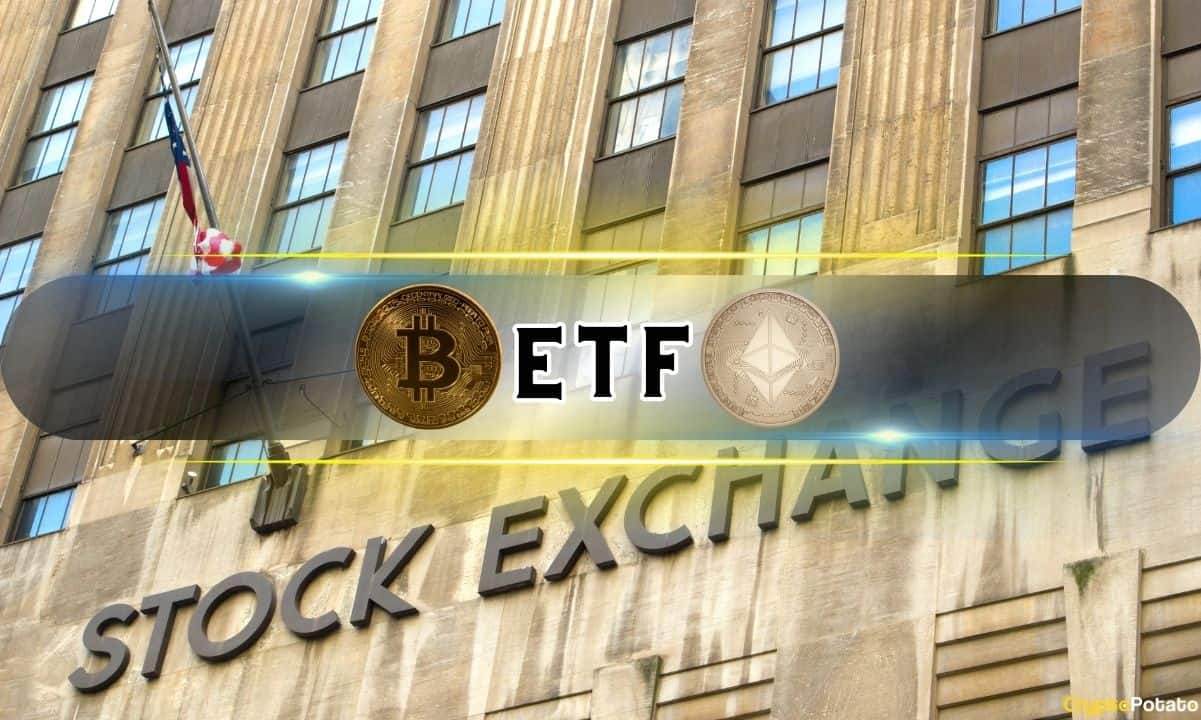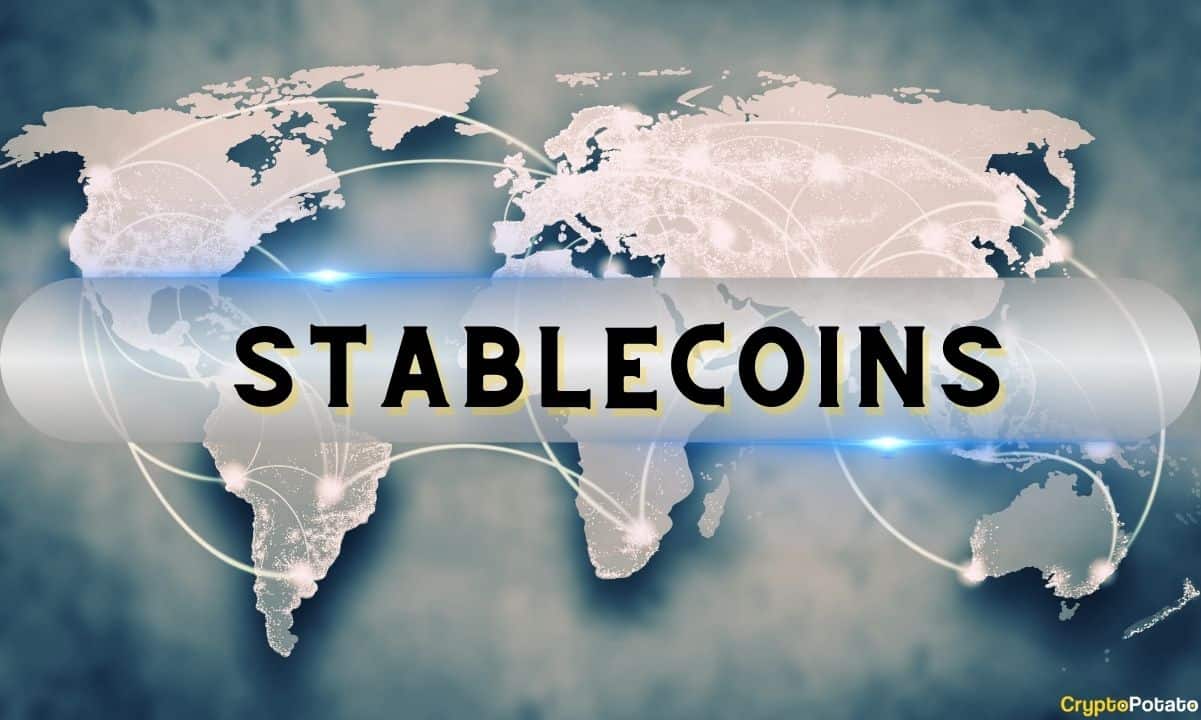Congress keeps adding more events to ‘Crypto Week,’ while President Trump’s family keeps adding more crypto money-making opportunities.
- More hearings, more pleas to be included
- Trump Media’s utility token plans take shape
- Justin Sun and the phantom UAE fund
- IRS purges’ DeFi broker’ rule; OCC leader confirmed
- Stablecoins, T-bills and an uncertain future
On July 16, the House of Representatives Committee on Ways & Means’ Oversight subcommittee will hold a hearing titled ‘Making America the Crypto Capital of the World: Ensuring Digital Asset Policy Built for the 21st Century.’
According to Committee Chair Jason Smith (R-MO), the hearing will focus on “the affirmative steps needed to place a tax policy framework on digital assets.” The hearing will be part of a crypto-focused period the House has dubbed ‘crypto week’ that will see floor votes on market structure legislation (the House’s CLARITY Act), stablecoins (the Senate’s GENIUS Act) and Tom Emmer’s revived anti-central bank digital currency (CBDC) legislation.
The House has yet to put forward any tax-specific crypto proposals, but Sen. Cynthia Lummis (R-WY) recently introduced a bill that addresses multiple angles of crypto taxation. While the House has its own stablecoin bill (STABLE Act), they appear ready to vote on GENIUS as is, so it’s possible that they could adopt Lummis’s tax plan, assuming she can first muscle it through her own chamber.
While the Senate is now rumored to be dropping a market structure discussion draft sometime next week, the chamber could also take up CLARITY without too much revisions. The Senate has yet to introduce a market structure bill of its own, merely a set of ‘principles,’ which rendered Wednesday’s Senate Banking Committee hearing on market structure regulation a rather inconsequential affair.
The possibility of the Senate leaning on CLARITY to get market structure done in a timely fashion got a boost on Wednesday from Committee member John Kennedy (R-LA), who told Semafor that “[i]n terms of the Senate starting from scratch drafting a market structure bill, it makes no sense to me.”
Amidst all this regulatory revamping, state securities regulators are asking Senate leaders not to exclude them from playing a role in crypto oversight. On July 7, the North American Securities Administrators Association (NASAA) sent a letter to Senators Tim Scott (R-SC) and Elizabeth Warren (D-MA), the chair and ranking member, respectively, of the Senate Banking Committee.
The letter asks that, as the Senate ponders market structure legislation, that it “preserve the critical role that state securities regulators play in our capital markets as fighters of fraud, market manipulation, and similar abuses.” Failing to do so “would have net-negative, significant consequences for Americans.”
The problem the NASAA faces is that the market structure plan Congress is advancing doesn’t foresee a major role for the federal Securities and Exchange Commission (SEC), instead leaving the bulk of crypto oversight to the Commodity Futures Trading Commission (CFTC), despite the latter agency being rather depleted at present.
So NASAA president Leslie Van Buskirk may well feel that she has “no reason to believe our federal partners would come close to making up the difference if my state colleagues and I were denied the opportunity to pursue and address fraud.” It just might not matter much, unfortunately.
Trump Media offers non-woke token (woken?)
Democrats have attempted to amend every crypto bill with language that would restrict the ability of President Trump and his family to profit off crypto ventures. But these efforts have all failed to date, and the Trump crypto empire just keeps growing.
On July 9, Trump Media & Technology Group (TMTG) announced that it had begun “public BETA testing the new Truth+ subscription TV streaming plan, the Patriot Package.” Said package is a curated mix of “premium, non-woke news channels” and other goodies, but for our purposes we’ll focus on the news that subscribers “will accumulate [activity-linked] gems on their Truth Social accounts. These will eventually be tied to a utility token on both Truth Social and Truth+.”
TMTG revealed in April that it was “exploring the introduction of a utility token,” no doubt encouraged by the enthusiastic (and lucrative) reception given to the president’s $TRUMP memecoin and also to WLFI, the governance token of Trump’s decentralized finance (DeFi) platform World Liberty Financial (WLF).
While TMTG has applied for three different crypto-focused exchange-traded funds (ETFs) and raised $2.4 billion to start its BTC-based ‘treasury,’ the company’s flagship product (the Truth Social platform) remains a ghost town.
The New York Times reported this week that 80% of Truth Social traffic is people viewing the president’s posts, and the company has struggled to sell advertising, resulting in a net loss of $31 million in the first quarter of 2025. Truth Social has yet to turn a profit since it went public and its shares are down nearly 45% since the year began.
Unknown unknowns buying Trump tokens
Wednesday’s news that Justin Sun, founder of the TRON network, planned to buy $100 million worth of $TRUMP wasn’t all that surprising, given Sun’s other gestures of fealty towards Trump’s crypto ventures. Sun previously purchased $20 million worth of $TRUMP and $75 million worth of WLFI, the latter purchase earning Sun a role as WLF advisor.
Speaking to Coindesk, Sun called $TRUMP “a very important memecoin and a globally-recognized [intellectual property].” TRON recently announced that it was preparing to launch $TRUMP, which was previously available only on the Solana chain. Sun called $TRUMP “the currency of [Trump’s Make America Great Again movement]” and claimed TRON “will make TRUMP token very popular in Asia and in the rest of the world.”
Late last month, WLF announced that it had sold $100 million worth of WLFI to the Aqua1 Foundation, a ‘Web3-native fund’ based in the United Arab Emirates. WLF said the two entities shared a goal to “help accelerate the creation of a blockchain-powered financial ecosystem centered on blockchain development, Real World Asset (RWA) tokenization, and stablecoin integration.” (The stablecoin in question is likely WLF’s USD1, which launched this spring.)
But crypto critic Jacob Silverman just published a report in The Nation detailing his inability to determine who or what comprises Aqua1. Silverman claimed there is “very little evidence that Aqua 1 Foundation exists at all,” including no corporate registration or other official filings in UAE public records.
Silverman had a similar lack of luck pinning down Aqua1’s purported co-founder Dave Lee, who appears to share Aqua1’s lack of official documentation. Nor did anyone from WLF respond to Silverman’s queries.
In June, prior to the $100 million WLFI purchase announcement, WLF’s official crypto wallet sent $800 million worth of the token to a digital wallet labeled aqua1.eth. That wallet then sent $80 million worth of USDT (Tether) back to WLF. The USDT came from an unknown wallet on Bybit, a UAE-based exchange that just announced support for USD1.
Silverman acknowledged that Aqua1 may indeed be a legit UAE company, although he also notes that “[s]omeone can spin up a website and press release and send $80 million worth of crypto to the US president’s associates without leaving the couch.”
The WLFI token is currently used only to vote on WLF governance proposals, but a new proposal was launched this week on whether to lift restrictions on trading WLFI on the open crypto market. On July 9, WLF tweeted that “[a]fter receiving overwhelming support on the forum, it’s clear, the community is ready” to unfetter WLFI.
Treasury offshoots ditching rules, adding leaders
In other U.S. news, the Internal Revenue Service (IRS) formally expunged the so-called ‘DeFi broker’ rule from the U.S. tax code on Thursday. The deeply unpopular rule required non-custodial platforms to collect and submit the same level of customer information as traditional brokers.
Following last November’s elections, both chambers of Congress moved swiftly to finalize and approve resolutions that would expunge the DeFi language from the IRS playbook. President Trump signed the legislation into law in April, making Thursday’s announcement something of a formality, but welcome nonetheless.
The IRS is an offshoot of the Treasury Department, as is the Office of the Comptroller of the Currency (OCC), which formally welcomed their new leader on Thursday. Jonathan Gould, a former chief legal officer at blockchain infrastructure firm Bitfury who once served as OCC deputy counsel, was nominated as the next OCC chief in February and approved by the Senate on Thursday.
Oddly enough, pro-crypto Sen. Cynthia Lummis (R-WY) initially signalled she was opposed to confirming Gould. Lummis reportedly wanted to have “further conversations” with Gould regarding his positions on stablecoins “and Federal pre-emption of state banking laws.” Whatever her concerns, Lummis eventually voted to approve Gould.
Stablecoins, T-bills, and an uncertain future
The total value of all U.S. Treasury bills held by stablecoin issuers reportedly topped $182 billion this week, which, if the sector was a country, would slot it between Saudi Arabia and Norway. We say ‘reportedly’ because some stablecoin issuers have never allowed respected third parties to verify that the T-bills they claim to hold as their reserve assets actually exist.
One of the major drivers of stablecoin legislation in the U.S. is the mantra that their wider adoption in markets outside America will help preserve the dollar’s role as the world’s reserve currency. Stablecoins are also expected to shore up America’s dodgy finances due to requirements for U.S.-approved issuers to hold their reserves in a narrow range of fiat assets, primarily T-bills.
Treasury Secretary Scott Bessent has suggested issuers would ultimately need to buy $2 trillion worth of T-bills by 2028 and $3.7 trillion by 2030. Less partisan opinions put this range as low as half a trillion.
The reality is nobody really knows, but one thing is sure: issuers won’t be buying long-term T-bills (the kind America prefers to sell) due to issuers’ need to be able to meet a large volume of redemptions without delay, just in case. Most issuers opt for T-bills with maturity dates of 90 days or under.
That may be why Treasury announced this week that it was increasing its issuance of T-bills, with a focus on four-, six-, and eight-week bills, for a total new issuance of ~$190 billion. The government likes them because they pay lower rates of interest than the five- and 10-year variety, but it also exposes the government to the possibility of pricier financing costs should interest rates suddenly lurch upward.
Treasury’s focus on short-term T-bills is also a reflection of the rest of the world’s growing unease with the state of America’s finances, specifically, its ability to pay its debts a year from now, let alone five or ten years. Should that worst-case scenario manifest itself, stablecoins’ ability to do anything to save America will be a drop in the ocean. C’mon in, the water’s, uh, warm?
Watch: Teranode is the digital backbone of Bitcoin

















 English (US) ·
English (US) ·